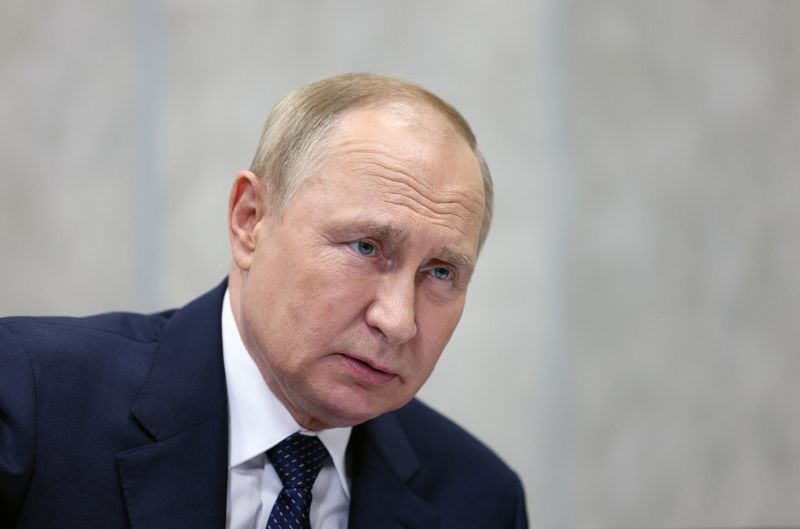MOSCOW (Reuters) – Russia’s digital ministry is scrambling to help key tech workers avoid being called up by the army after President Vladimir Putin ordered a partial mobilisation to bolster Russian forces in Ukraine.
The ministry issued guidelines late on Monday detailing how specific workers can avoid the draft. It published a list of 195 IT and communications professions – including jobs in science energy, transport and the media – for which it recommended workers should be exempt from mobilisation.
However, just working at an accredited IT company is not enough by itself to entitle a person to exemption – they need to fulfil “critical functions”, the ministry said. Higher education qualifications and full-time contracts may also be required.
The ministry said it would launch a service on Tuesday to gather information about workers who should not be involved in military service. It urged people to act immediately.
“There is practically no time for testing – it is being launched ‘off the cuff’,” the ministry said.
“We suggest that you don’t wait for the service to be launched and start filling this form out now in order to sign it with your employer as soon as possible.”
The haste was a sign of the havoc wrought by Putin’s sudden order last Wednesday, which reversed previous Kremlin statements that no mobilisation was planned. Since then, many Russian men have rushed to flee the country, and Putin allies have voiced rare criticism on state television of how the draft order has been carried out.
Russian officials have sought to play down the economic impact mobilisation may have. More than 70,000 IT sector workers left Russia soon after Moscow sent its troops into Ukraine in February, although some have since returned.
The Russian Union of Industrialists and Entrepreneurs (RSPP) said the list of professions granted deferment from partial mobilisation needed to be expanded.
“The short-term departure in the workforce of a number of key personnel cannot be efficiently compensated by rapid recruitment in the market, when it comes to technological production with a high level of demands for workers’ qualifications,” RSPP said in a statement.
It said key staff at backbone organisations of the economy, critical infrastructure, and those in the defence sectors should be granted deferment.
(Reporting by Reuters; Editing by Mark Trevelyan)
